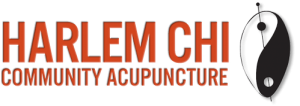 Unfortunately for many seasonal allergy sufferers Spring can be both a welcome and a burden. Sneezing, itchy and watery eyes, congestion, runny nose and sinus headaches are what many have to look forward to this time of year.
Unfortunately for many seasonal allergy sufferers Spring can be both a welcome and a burden. Sneezing, itchy and watery eyes, congestion, runny nose and sinus headaches are what many have to look forward to this time of year.
It is important to understand that the symptoms allergy sufferers experience are a sign of a suboptimal functioning of the immune system. It isn’t the allergy itself that’s the problem, but a person’s reaction to the allergens. Typical symptoms are a result of the body’s hypersensitivity to substances in the environment. Substances that are normally harmless, such as pollen, now represent a threat to many.
Western medicine views seasonal allergies as a form of immediate hypersensitivity reaction, which occurs when anti-bodies produced by lymphocytes interact with airborne particles such as pollen. The locations of of these lymphocytes in addition to being in the blood stream are also in Peyer’s patches in the gastrointestinal tract, spleen, lymph nodes, and bone marrow. Interestingly often times a typical acupuncture treatment consists of treating the Spleen, Stomach, and Large Intestine meridians as a way to balance and regulate those systems to address the exaggerated immune response. Just one example of the overlap of Western and Traditional East Asian medical thought.
In fact, Ancient Chinese Medicine operates from a fundamental systems-based understanding of the functioning of the body where a complex meridian system ties a number of functional activities in the body together. The task is always to restore balance and aid the body in better regulating those activities. Thus a weak digestive system (first line of defense) may be at the base of one allergy sufferer’s symptoms whereas one’s Liver detoxification system (second line of defense) (as discussed in a previous blog) might be the weak link in another. A typical acupuncture session always seeks to access the proper system to address the imbalance.
While there are many medications to treat the symptoms of seasonal allergies, conventional treatments, which consist primarily of antihistamines and steroid nasal sprays, focus on suppressing the symptoms and can cause unwanted side effects, such as drowsiness and immune system suppression as well as an over-reliance on medications. These side effects motivate many people to search for alternative approaches to manage their allergies.
Fortunately, Traditional East Asian Medicine offers a safe and natural option. With acupuncture there are no such side effects and most often an immediate response. Most people end up significantly reducing or eliminating their dependence on allergy medication. People usually get relief during their first acupuncture treatment. It is often recommended to come in for treatment prior to the onslaught of allergy symptoms to address the underlying imbalances. A normal course of treatment may include a series of acupuncture treatments with a prescription of herbal remedies as well as recommendations for dietary modifications.
So to all allergy sufferers out there — Give acupuncture a try this season. Make your next appointment with your acupuncturist today.
- Suffer From Seasonal Allergies? - May 1, 2023
- Circadian Rhythms - March 9, 2023
- Long-COVID – How Chinese Medicine Helps - February 6, 2023




1 Comment